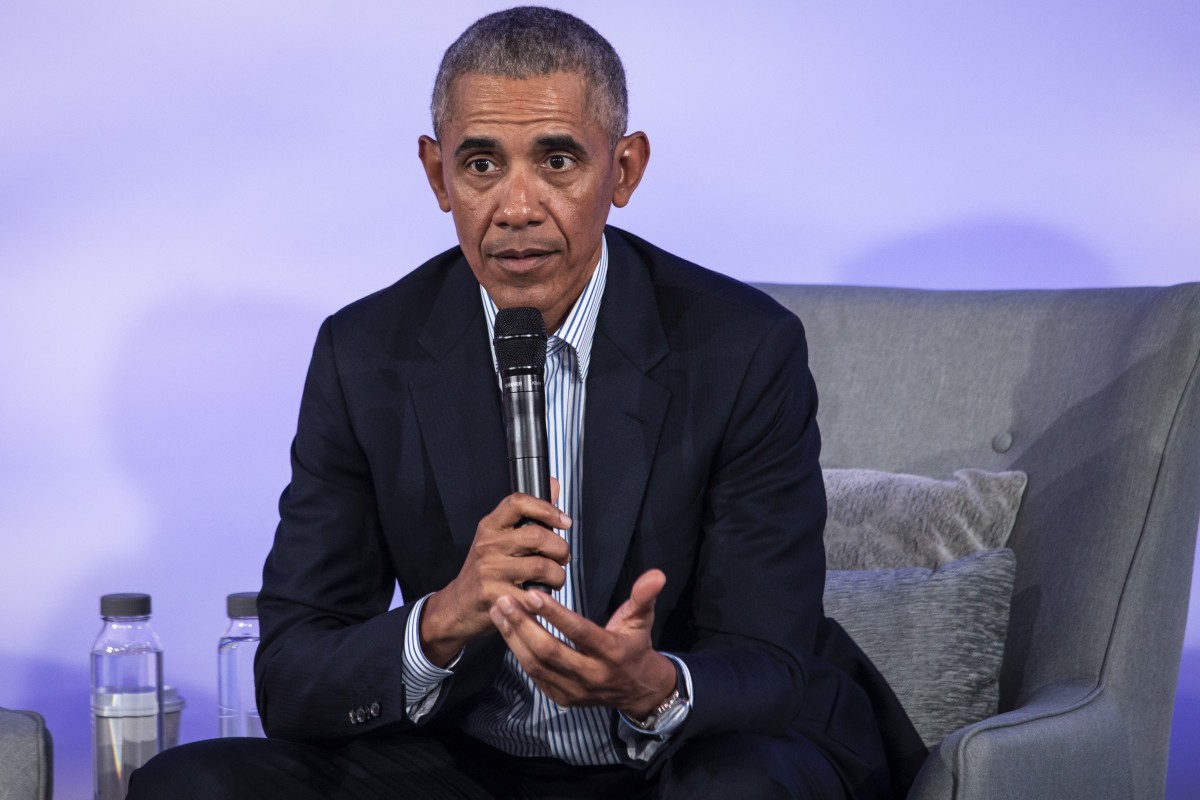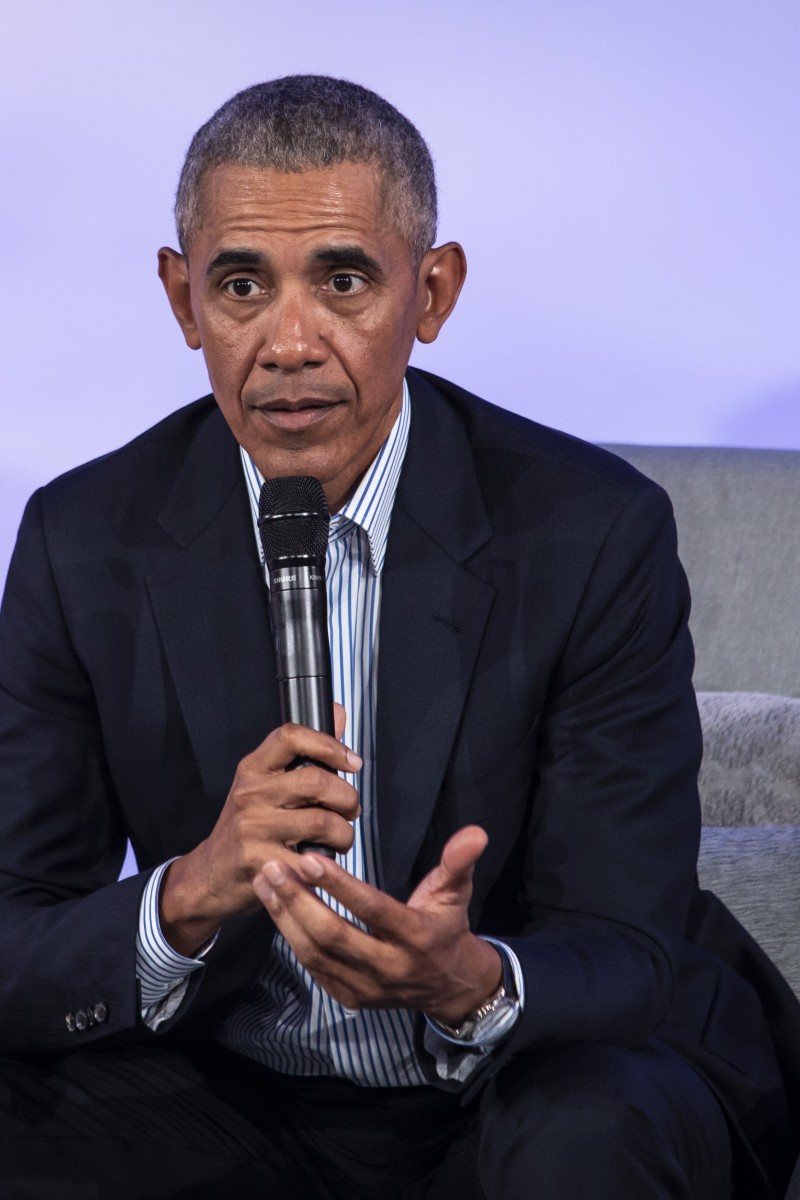 Former US President Barack Obama said public shaming on social media is not activism.
Former US President Barack Obama said public shaming on social media is not activism. Former President Barack Obama recently offered some advice to young people hoping to change society: Participating in cancel culture isn’t the way to do it.
“This idea of purity and you’re never compromised and you’re always politically woke and all that stuff, you should get over that quickly,” the 58-year-old said while speaking at the Obama Foundation Summit in Chicago. “The world is messy. There are ambiguities. People who do really good stuff have flaws.”
Obama’s pointed warning that social media enables “woke” people to be “as judgmental as possible” went viral, drawing praise from both the left and right. Clips shared on Twitter were viewed millions of times as many stressed that social media users needed to hear his message.
Face off: Is freedom of speech necessary in a functional society?
Obama was roughly 50 minutes into a discussion with young leaders at the summit about their activism when he mentioned that he had started to notice a worrisome trend among young people, particularly on college campuses. “There is this sense sometimes of, ‘The way of me making change is to be as judgmental as possible about other people,’ and that’s enough,” he said, noting this mindset was only “accelerated by social media.”
“If I tweet or hashtag about how you didn’t do something right or used the wrong verb, then I can sit back and feel pretty good about myself, because man you see how woke I was?” he said, drawing laughter from the audience. “I called you out.”
But the act of public shaming on social media, Obama said, is “not activism.”
Video stars: Russian child influencers score millions of fans on Instagram
“That’s not bringing about change,” he said. “If all you’re doing is casting stones, you’re probably not going to get that far. That’s easy to do.” With that, Obama effectively inserted himself into the ongoing debate that surrounds cancel culture, a term that refers to a mass effort, usually carried out on social media, to call out prominent people for any alleged wrongdoing and demand that they lose access to their public platforms.
The strategy has proved vital to holding powerful figures accountable, sparking international movements such as #MeToo. But “canceling” has also been criticised for encouraging mob behaviour that often results in major consequences to people’s lives.
Boycotts have long been considered an efficient method of motivating change, but the intense censoring of people or groups on social media is a newer tactic that has gained popularity among the left, according to CNN’s Chris Cillizza, who described it as “one of the defining hallmarks of our culture in the post-Obama presidency.”
“Say something wrong, tweet something people disagree with, express an opinion that is surprising or contradicts the established view people have of you, and demands for you to be fired, de-friended or otherwise driven from the realms of men quickly follow,” Cillizza wrote.
It is not especially surprising then that Obama, known for promoting compromise, would take issue with an approach that hinges on the premise that everything is black and white, and the summit wasn’t the first time that he’s publicly raised concerns.
“One of the dangers of the internet is that people can have entirely different realities. They can be cocooned in information that reinforces their current biases,” Obama said in 2017. “The truth is, is on the internet everything is simplified and when you meet people face to face, it turns out they’re complicated.”
Barack Obama's response to Charlottesville violence makes Twitter history
He later added: “It is harder to be as obnoxious and cruel in person as people can be anonymously on the internet.”
At an event celebrating former South African President Nelson Mandela in July 2018, Obama emphasised the importance of understanding people with different backgrounds and beliefs.
“Maybe we can change their minds, but maybe they’ll change ours,” Obama said. “And you can’t do this if you just out of hand disregard what your opponents have to say from the start.”
Here’s why centrist political parties are doomed to fail in today’s world
Many applauded Obama for, as one person put it, “speaking wisdom.”
“I love this,” CBS late-night host James Corden tweeted. His praise was echoed by other celebrities, such as comedians Billy Eichner and Sarah Silverman, and actor John Cleese.
“An actual adult with experience and perspective has entered the building,” Eichner wrote on Twitter. “You’ve been warned!”
Hong Kong Instagram account SurrealHK shows the city in a whole new light
Obama’s commentary sparked tweets from Cleese of Monty Python fame, who voiced his own critique of “woke persons,” ripping them for thinking in “binary terms.”
Even conservative commentator Tomi Lahren had positive comments about Obama, remarking on FOX News that the former president is “looking like the voice of reason.”
But Obama’s words did not sit well with everyone. “Oligarch Irritated by Agonised Youth,” one Twitter user captioned a video of Obama speaking at the summit.
But the former US president’s supporters suggested that the president had not been “criticising ‘cancel culture’ alone.”
“He’s criticising attempts to force normal people into black-and-white, good or evil boxes, because most humans are more complicated than that and shouldn’t be reduced to their worst tweet.”
